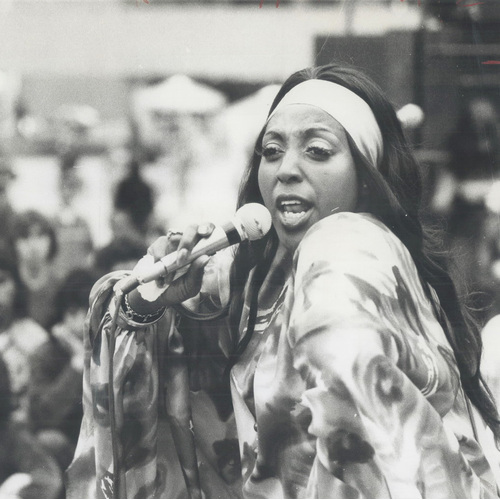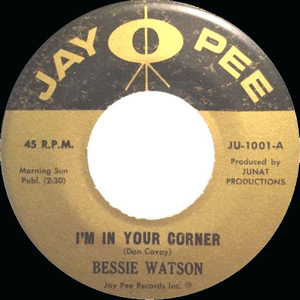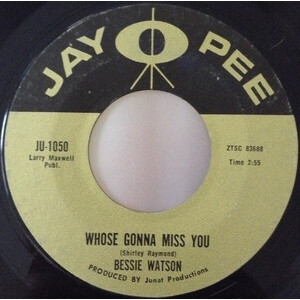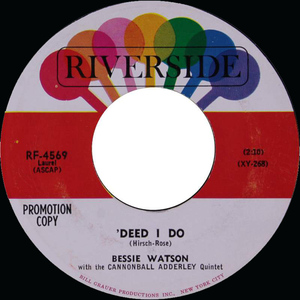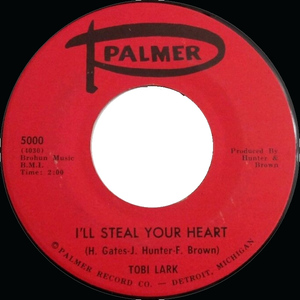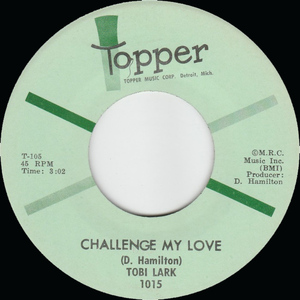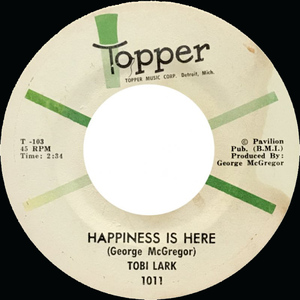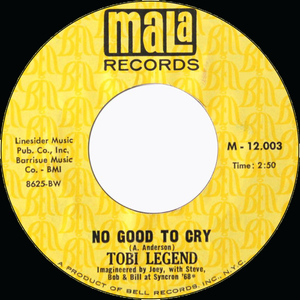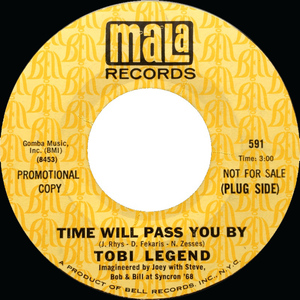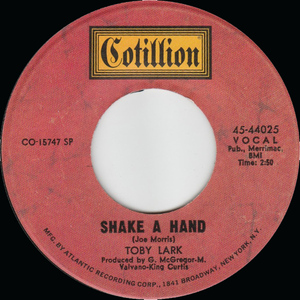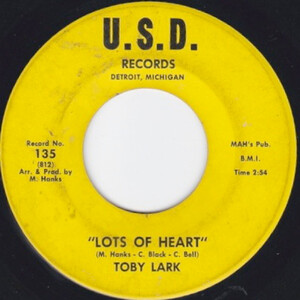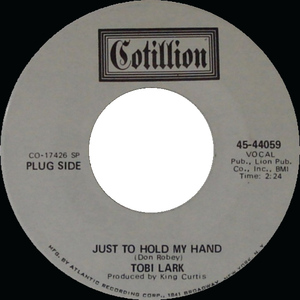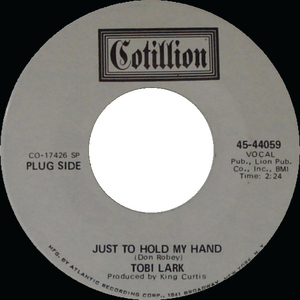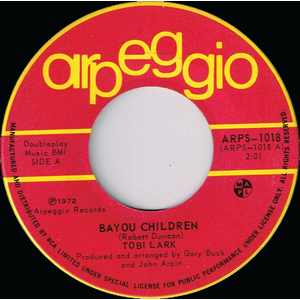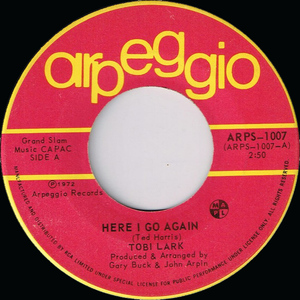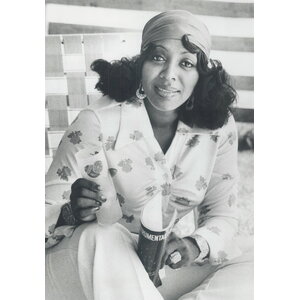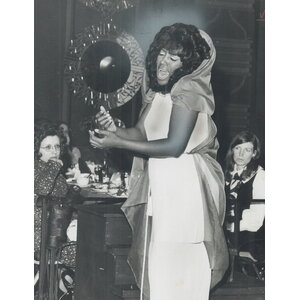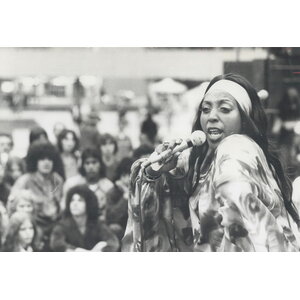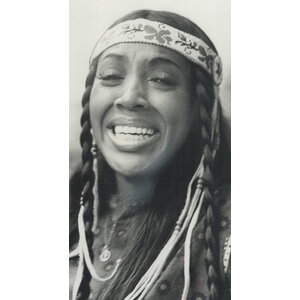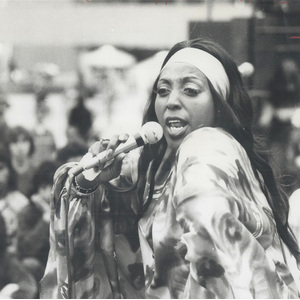Lark, Tobi (Bessie Grace Gupton) aka Bessie Watson
Websites:
No
Origin:
Alabama → Detroit, Michigan, 🇺🇸 → Montréal, Québec → Toronto, Ontario, 🇨🇦
Biography:
Tobi Lark is an American-born soul and gospel vocalist whose career bridged the United States and Canada during the 1960s and 1970s, encompassing gospel, soul, pop, musical theatre, and large-scale live recording projects. Born in Alabama and raised in Detroit, she developed her voice within the gospel tradition before emerging as a professional singer with a presence that extended from church choirs to major studio sessions and international cult recordings.
Lark was born Bessie Grace Gupton in Alabama, the daughter of gospel singer Emma Washington. She grew up in Detroit and began performing publicly at the age of nine with the Emma Washington Gospel Singers, touring extensively throughout her childhood and adolescence. After more than a decade on the gospel circuit, she secured her first professional work as a backing vocalist for B.B. King, an experience that placed her within the broader rhythm-and-blues touring network of the early 1960s.
Her first recordings appeared in 1963 under the name Bessie Watson, beginning with “Deed I Do,” backed by the Cannonball Adderley Quintet, followed by additional singles on the Jay Pee label. During the mid-1960s she recorded further material under the name Tobi Lark for several American labels, while also performing with artists including the Impressions, the Four Tops, Ben E. King, Wilson Pickett, King Curtis, Duke Ellington, and Cannonball Adderley. Despite her extensive performance résumé, these early recordings achieved little commercial success at the time.
Following a separation from her husband, Lark relocated to Canada in the mid-1960s, initially settling in Montréal with her young son. She performed in clubs and appeared at Expo ’67 before moving to Toronto, where she worked with Ronnie Hawkins and became increasingly active in theatre and live performance. She was cast in a lead role in the Toronto production of Hair and later established the Armageddon Revue at the Blue Orchid, becoming a prominent presence on the city’s late-1960s stage circuit.
In 1968, while in Detroit, Lark recorded the song “Time Will Pass You By,” believing it to be a demo. The recording was released without her knowledge under the name Tobi Legend and initially passed unnoticed in North America. In the early 1970s, however, the record was adopted by the Northern Soul scene in the United Kingdom, where it became one of the legendary “Three Before Eight” closing songs at the Wigan Casino all-night dances. It is now regarded as one of the defining recordings of the genre and remains Lark’s most internationally recognized work.
Returning to Canada, Lark recorded several singles under her own name, including “Shake A Hand” and “Just To Hold My Hand,” before achieving her highest Canadian chart success in 1970 with “We’re All In This Together.” The song was recorded live at St. Paul’s Roman Catholic Church in Toronto with a massed chorus and a large ensemble of local musicians. Conceived as a communal, post-Woodstock statement, the recording reached No. 38 on the RPM national singles chart and was widely covered in the Canadian press for both its scale and its ambition. The session was produced by Terry Vollum and John deNottbeck, arranged in part by Ben McPeek, and executive-produced by Jack Richardson.
Throughout the early 1970s, Lark continued to perform and record in Canada and the United States, appearing with the Toronto Symphony Orchestra and sharing stages with artists such as Kenny Rogers. She later recorded a pair of country-soul singles and remained active as a live performer into the mid-1990s. After a period of withdrawal from the music industry following personal tragedies, she gradually returned to performing, embracing blues, gospel, jazz, and soul repertory shaped by her life experience.
Although much of her recorded output was overlooked at the time of release, Tobi Lark’s reputation has grown steadily through reissues, compilations, and retrospective scholarship. Today she is recognized both for her singular Northern Soul classic and for her central role in one of the most unusual large-scale live recording projects in Canadian music history.
-Robert Williston
